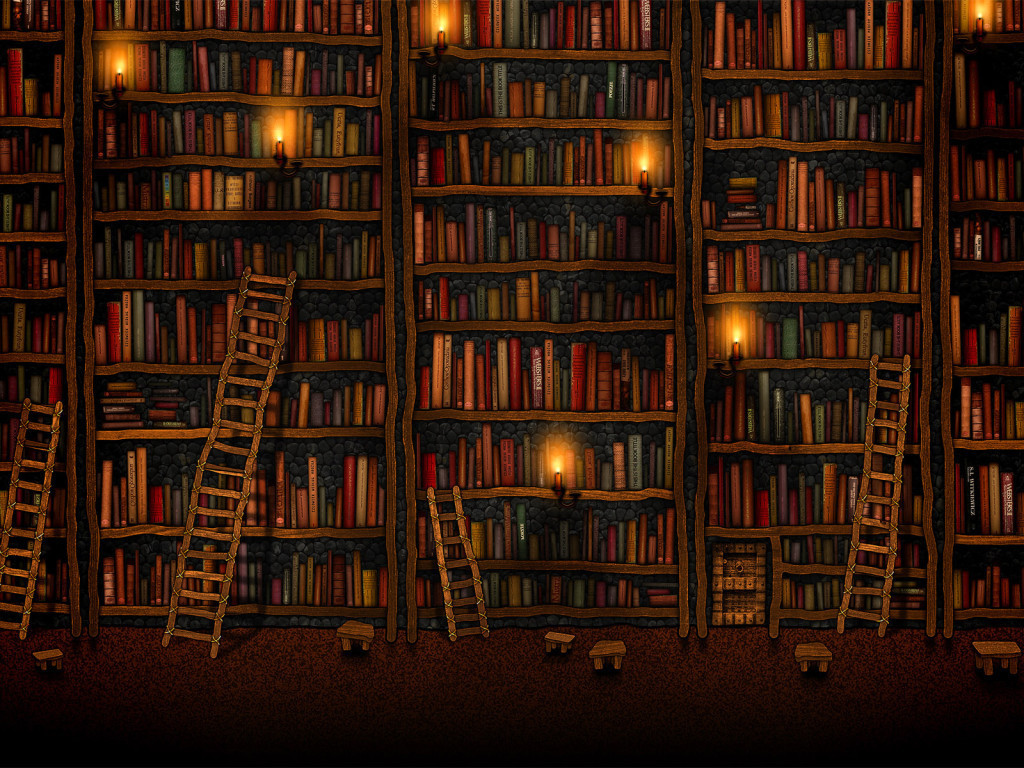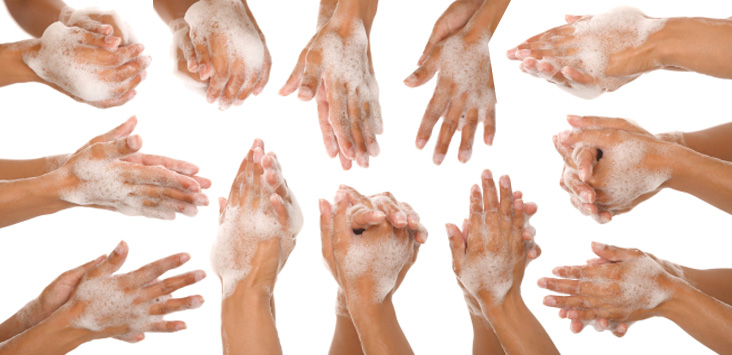 Obsessive compulsive disorder (OCD) is an anxiety disorder whereby the sufferer adopts compulsive behaviours in order to deal with unwanted or unpleasant thoughts, known as obsessions. Compulsions can manifest themselves as a range of different behaviours, including counting, tapping, checking and hoarding, and many sufferers experience a mix of these. I was diagnosed with contamination OCD as a young teenager, and have used handwashing and avoiding contact with ‘contaminated’ objects or surfaces as a means to reduce my anxiety ever since.
Obsessive compulsive disorder (OCD) is an anxiety disorder whereby the sufferer adopts compulsive behaviours in order to deal with unwanted or unpleasant thoughts, known as obsessions. Compulsions can manifest themselves as a range of different behaviours, including counting, tapping, checking and hoarding, and many sufferers experience a mix of these. I was diagnosed with contamination OCD as a young teenager, and have used handwashing and avoiding contact with ‘contaminated’ objects or surfaces as a means to reduce my anxiety ever since.
 Features of OCD go hand-in-hand with the stereotypes of academics so often purported in the media. While being holed up in a dusty study scattered with papers and surrounded by trinkets may not be the typical reality of a modern academic, for me it is pretty accurate, and luckily it is conducive to productivity in terms of my research. I can, however tenuously, get away with being the ‘eccentric intellectual’, especially around non-academic friends, but when it comes to the moments when my success depends on not being preoccupied with how to inconspicuously open a door without touching the handle, it is sometimes inevitable that I don’t stand a chance at making the good impression that I so desperately want to make.
Features of OCD go hand-in-hand with the stereotypes of academics so often purported in the media. While being holed up in a dusty study scattered with papers and surrounded by trinkets may not be the typical reality of a modern academic, for me it is pretty accurate, and luckily it is conducive to productivity in terms of my research. I can, however tenuously, get away with being the ‘eccentric intellectual’, especially around non-academic friends, but when it comes to the moments when my success depends on not being preoccupied with how to inconspicuously open a door without touching the handle, it is sometimes inevitable that I don’t stand a chance at making the good impression that I so desperately want to make.
I am currently halfway through my PhD and enjoying the fact that I can work in any place I please for the majority of the week. As I near the end of my project, however, I’m beginning to feel an increasing sense of panic, knowing that the hazy dream of securing an academic job at the end of all of this hard effort will inevitably compromise the ‘safety’  in which I currently work. At present I work from the comfort of my own home three days a week. This means I can wear what I please (nothing that presses against my skin), eat what I fancy (I can stand at the sink washing an apple for five minutes and no one will know) and not waste time waiting for someone else to go through a door before me so I can slip in behind them without touching the door handle. Having OCD is exhausting, and at times the combination of doing a PhD and dealing with OCD is too hard to bear. Like most mental health issues, it is worse during times of increased stress or pressure, which is of course the time when it becomes most inconvenient and unbearable.
in which I currently work. At present I work from the comfort of my own home three days a week. This means I can wear what I please (nothing that presses against my skin), eat what I fancy (I can stand at the sink washing an apple for five minutes and no one will know) and not waste time waiting for someone else to go through a door before me so I can slip in behind them without touching the door handle. Having OCD is exhausting, and at times the combination of doing a PhD and dealing with OCD is too hard to bear. Like most mental health issues, it is worse during times of increased stress or pressure, which is of course the time when it becomes most inconvenient and unbearable.
During these times, as with any anxiety-based disorder, I struggle to go about normal activities such as brushing my teeth or leaving the house. Hiding away in bed until it passes is often the most appealing option, and trying to concentrate on reading an article or writing up a chapter is near impossible. This leads to the perpetuation of guilt that I’m not working hard enough to warrant being a PhD student anymore, and so the cycle continues until the anxiety eventually starts to dissolve. In trying to deal with this, I’ve realised that in its own way this anxiety can be productive. I know I can’t focus on anything important during these periods, but this is a good opportunity to keep up with admin, emails or even clearing out my inbox or document folders. While it doesn’t count as ‘research’ per se, it does help me to get on with my research with a clearer focus once I am able to put my mind to it again.
 One of the biggest challenges of being a PhD student with OCD is conferences. When speaking at conferences I have to hope that I am presenting in the morning: buffets are my worst nightmare, and doing a talk on an empty stomach is never a recipe for success. Then there’s the train journeys, the hand shaking, the chewy coffee cups that taste so strongly of paper, and the unbearable uncertainty of the institution’s toilet facilities that turn conferences into the minefield that they are for the OCD sufferer. Working with other people, too, can be a nightmare. Going out for lunch or even coffee, for example, can turn a professional meeting into a ream of excuses as to why I don’t want anything to eat or drink but yes I’m fine thank you, perfectly happy to keep on working. It is impossible to hide these compulsions and behaviours, and inevitably people often interpret them as something that they are not.
One of the biggest challenges of being a PhD student with OCD is conferences. When speaking at conferences I have to hope that I am presenting in the morning: buffets are my worst nightmare, and doing a talk on an empty stomach is never a recipe for success. Then there’s the train journeys, the hand shaking, the chewy coffee cups that taste so strongly of paper, and the unbearable uncertainty of the institution’s toilet facilities that turn conferences into the minefield that they are for the OCD sufferer. Working with other people, too, can be a nightmare. Going out for lunch or even coffee, for example, can turn a professional meeting into a ream of excuses as to why I don’t want anything to eat or drink but yes I’m fine thank you, perfectly happy to keep on working. It is impossible to hide these compulsions and behaviours, and inevitably people often interpret them as something that they are not.
 In all, though, I feel that the PhD offers me the best working environment that I could have because it allows me the choice of where I work. I can sit at home and not see anyone. There my worries are quiet, and I’m free to work to my heart’s content without the distraction of marks on the library carpet or of other people’s coughs and splutters. Prior to starting my PhD I worked in an office for two years, as well as a shop for six months, and spent a lot of time worrying and fretting, checking and washing, exhausting myself into a miserable heap of anxiety. Luckily for me, the PhD has been a relief from the constant worry of my OCD, and the periods of depression that often come as a result of that. In this world of academia I feel that I can be myself, and I’m the most at home that I’ve ever been in any sort of working sphere. I keep quiet about my OCD, but I’m also happy to acknowledge some of my ‘quirks’ as eccentricities that often seem to come with the territory. In terms of getting through the work, I try to allocate time to specific areas in terms of my mood: I have tasks for when I’m overly anxious and can’t concentrate, and tasks for when my mind is racing so hard and so freely that I can write pages of my PhD in just a couple of hours. On the rare occasion that my thoughts are quiet, I take time to read and to catch up on my research area, the aspect of the PhD that my OCD gets in the way of the most.
In all, though, I feel that the PhD offers me the best working environment that I could have because it allows me the choice of where I work. I can sit at home and not see anyone. There my worries are quiet, and I’m free to work to my heart’s content without the distraction of marks on the library carpet or of other people’s coughs and splutters. Prior to starting my PhD I worked in an office for two years, as well as a shop for six months, and spent a lot of time worrying and fretting, checking and washing, exhausting myself into a miserable heap of anxiety. Luckily for me, the PhD has been a relief from the constant worry of my OCD, and the periods of depression that often come as a result of that. In this world of academia I feel that I can be myself, and I’m the most at home that I’ve ever been in any sort of working sphere. I keep quiet about my OCD, but I’m also happy to acknowledge some of my ‘quirks’ as eccentricities that often seem to come with the territory. In terms of getting through the work, I try to allocate time to specific areas in terms of my mood: I have tasks for when I’m overly anxious and can’t concentrate, and tasks for when my mind is racing so hard and so freely that I can write pages of my PhD in just a couple of hours. On the rare occasion that my thoughts are quiet, I take time to read and to catch up on my research area, the aspect of the PhD that my OCD gets in the way of the most.
 Overall, I feel that as an OCD sufferer I have landed in a good place. For now, I’m able to get on alongside my OCD, rather than constantly trying to battle it; I even find that the obsessive thoughts can be a benefit to productivity, given the right environment and the right mood. I worry a lot about what will happen once the PhD is over and I start looking for a job that demands ‘contact’ with other people and other places. And of course, the longer I isolate myself for, the harder it will be to make this contact with the world. Here I rely on the biggest challenges of my PhD – the conferences, meetings and seminar-teaching – to help me aim for a lifestyle in which I’d be able to work through my OCD behaviours and minimize the anxieties that it brings to everyday situations.
Overall, I feel that as an OCD sufferer I have landed in a good place. For now, I’m able to get on alongside my OCD, rather than constantly trying to battle it; I even find that the obsessive thoughts can be a benefit to productivity, given the right environment and the right mood. I worry a lot about what will happen once the PhD is over and I start looking for a job that demands ‘contact’ with other people and other places. And of course, the longer I isolate myself for, the harder it will be to make this contact with the world. Here I rely on the biggest challenges of my PhD – the conferences, meetings and seminar-teaching – to help me aim for a lifestyle in which I’d be able to work through my OCD behaviours and minimize the anxieties that it brings to everyday situations.
thank you for writing about ocd.